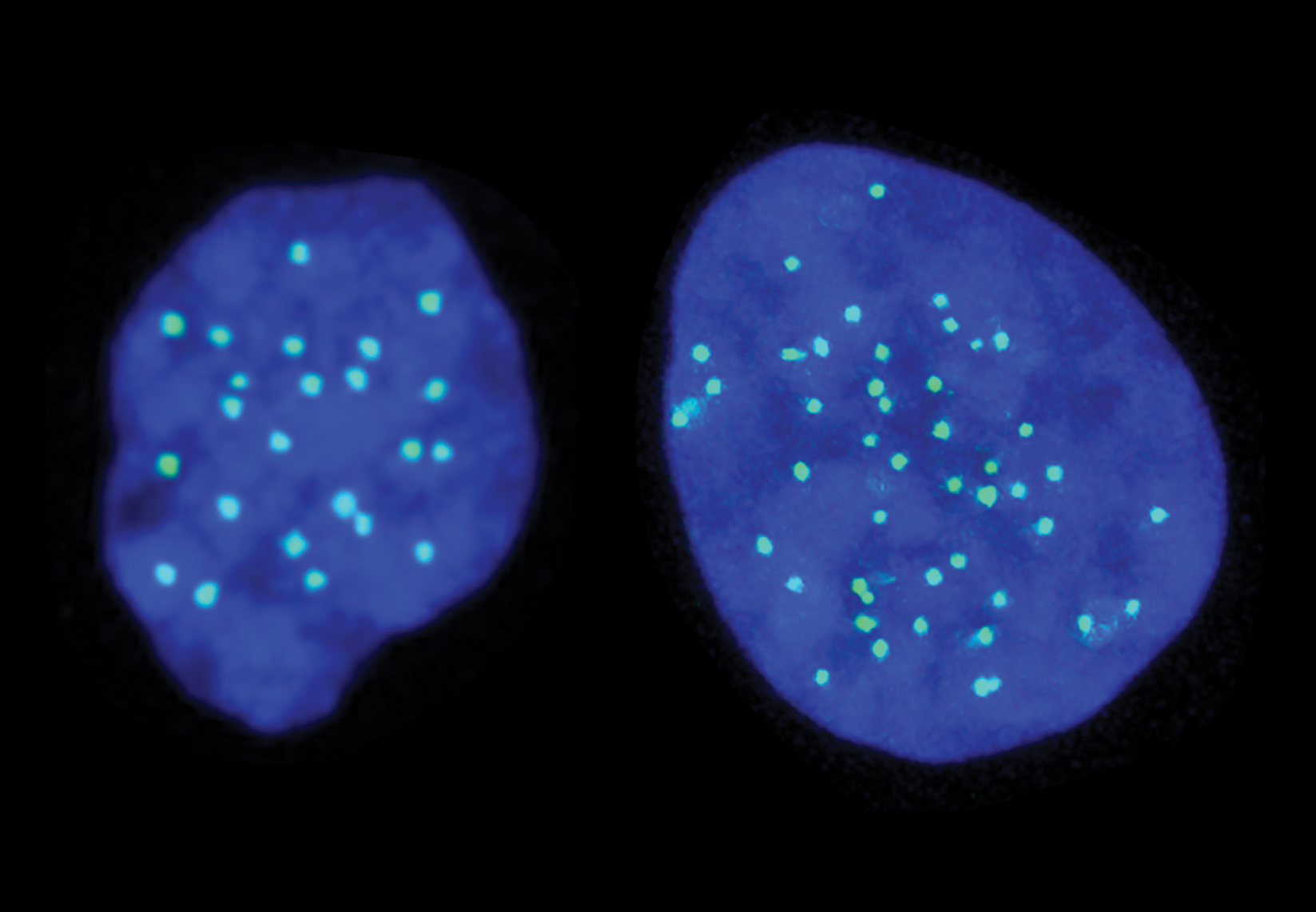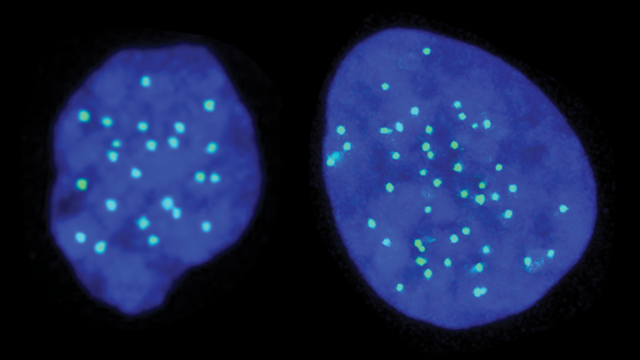Almost all the cells in your body have two sets of 23 chromosomes, for a total of 46 chromosomes. These are diploid cells. Your sperm or your egg cells, called haploid cells, only have 23 chromosomes. For the first time, scientists have made human stem cells with haploid cells. This could lead to a lot of important medical treatments.
Scientists at the Hebrew University of Jerusalem, Columbia University Medical Center (CUMC) and the New York Stem Cell Foundation Research Institute got haploid egg cells, otherwise known as unfertilised human eggs, to divide without being fertilised. The result was a haploid stem cell which was pluripotent — able to grow into all kinds of different tissues.

One the left is a haploid cell with 23 chromosomes, and on the right is a diploid cell with 46 chromosomes. Credit: Gloryn Chia/Columbia University Medical Center
The researchers are hoping that studying these cells can give us a clue about why we need a whole 46 chromosomes to reproduce in the first place. They also hope that the haploid eggs can give us insight into genetic diseases, the effects of which are often mitigated by the second “back-up” chromosome.
